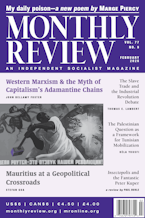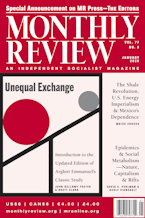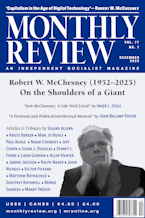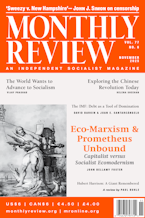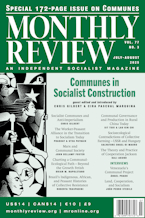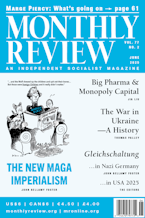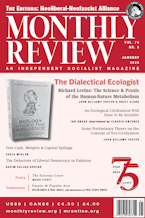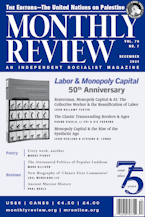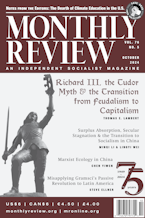Search Results
Filter Results OPEN +

Monthly Review Vol. 77 (2025–2026), No. 09 (February 2026)
Pub Date: 1st February 2026
Monthly Review Vol. 77 (2025–2026), No. 08 (January 2026)
Pub Date: 1st January 2026
Monthly Review Vol. 77 (2025–2026), No. 07 (December 2025)
Pub Date: 1st December 2025
Monthly Review Vol. 77 (2025–2026), No. 06 (November 2025)
Pub Date: 1st November 2025
Monthly Review Vol. 77 (2025–2026), No. 05 (October 2025)
Pub Date: 1st October 2025
Monthly Review Vol. 77 (2025–2026), No. 04 (September 2025)
Pub Date: 1st September 2025
Monthly Review Vol. 77 (2025–2026), No. 03 (July-August 2025)
Pub Date: 1st July 2025
Monthly Review Vol. 77 (2025–2026), No. 02 (June 2025)
Pub Date: 1st June 2025
Monthly Review Vol. 77 (2025–2026), No. 01 (May 2025)
Pub Date: 1st May 2025
Monthly Review Vol. 76 (2024–2025), No. 11 (April 2025)
Pub Date: 1st April 2025
Monthly Review Vol. 76 (2024–2025), No. 10 (March 2025)
Pub Date: 1st March 2025
Monthly Review Vol. 76 (2024–2025), No. 09 (February 2025)
Pub Date: 1st February 2025
Monthly Review Vol. 76 (2024–2025), No. 08 (January 2025)
Pub Date: 1st January 2025
Monthly Review Vol. 76 (2024–2025), No. 07 (December 2024)
Pub Date: 1st December 2024
Monthly Review Vol. 76 (2024–2025), No. 06 (November 2024)
Pub Date: 1st November 2024
Monthly Review Vol. 76 (2024–2025), No. 05 (October 2024)
Pub Date: 1st October 2024

